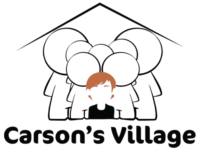A caregiver is someone who helps a person who needs assistance with daily activities due to aging, illness, disability or injury. Caregivers can play a significant role in an individual’s life, sometimes they are all the support that one has. Whether they are related to the individual they are caring for or not, caregivers may need emotional and mental support following the aging and passing of those they care for.
There are many ways to support caregivers, like respite care, facilitating medical care communication, and informal peer support systems. Respite care, or temporary relief for primary caregivers, offers short-term care for those in need, allowing caregivers to rest or manage personal tasks. It can be provided at home, in a facility, or at an adult day center. is one major support that allows caregivers to rejuvenate mentally, physically, and emotionally. Regular check-ins with healthcare teams support caregivers by giving them a chance to express any needs or concerns during aging and end-of-life care. Finally, peer support systems can provide caregivers with personalized emotional support through existing relationships.
Ways to support caregivers:
Respite care: This allows caregivers to take a break to recover physically and/or emotionally. You can sponsor respite care for them, help them find an appropriate facility, or help them plan fun activities to do while their loved ones are in others care.
Support groups: Caregivers finding connection with others who are experiencing similar situations can be a great way to find support and discuss common problems to find solutions. Building a coming can be as easy as searching local groups on sites like Caregiver Action Network or talking to those in your local area.
Conduct check-ins: This will allow the caregiver to express any needs and/or concerns. This applies to healthcare teams and any caregiver you might know in your personal life. Sometimes, just reaching out to express support and offer any help can make all the difference.
